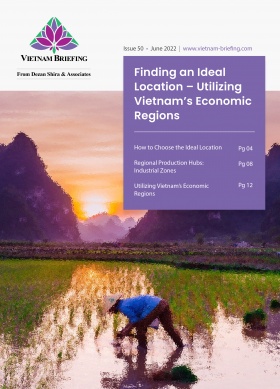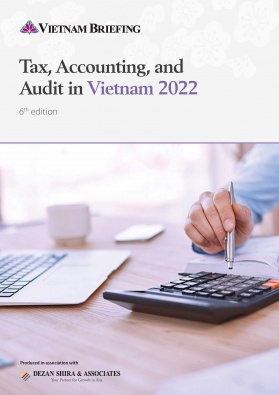Vietnam’s CEP Industry: Sustainability Challenges But Big Potential
The rapid growth in ecommerce in Vietnam has seen demand for courier, express, and parcel services soar. But transportation is a key contributor to greenhouse gas emissions and Vietnam is committed to reaching net zero by 2050. What does this mean for the CEP industry?
Vietnam’s courier, express, and parcel (CEP) industry is showing impressive potential, but its impact on the environment is a significant problem.
That said, recent government action and regulations may lead to changes in the way delivery businesses operate in Vietnam.
Growth drivers in Vietnam’s CEP industry
One of the fastest-growing sectors of the logistics and transportation industry is the CEP industry. By 2024, the Vietnamese market for CEP services is anticipated to reach US$3.5 billion, growing at a CAGR of 15 to 18 percent.
This growth is being driven by several factors:
- Next-generation free trade agreements (FTAs) that promote FDI inflows in infrastructure and information systems;
- The Greater Mekong Subregion Cross-Border Transportation Facilitation Agreement (GMS-CBTA) that facilitates trade and transport between Laos, Thailand and Vietnam; and
- The rapid growth of Vietnam’s ecommerce sector.
Sustainability challenges for CEP deliveries
However, the development of the CEP industry has resulted in increasing greenhouse gas (GHG) emissions and environmental degradation.It is estimated that by 2050, Vietnam’s total GHG emissions will reach almost 1.5 billion tons of CO2 equivalent (CO2-eq).
Currently, transportation-related activities are responsible for 33.2 million tons of emissions, contributing 19.3 percent to Vietnam’s yearly emissions.
If these numbers continue to grow in line with overall emissions, Vietnam’s transportation sector would be responsible for almost 290 million tons of CO2-eq by 2050.
As such, adjustments will need to be made to the industry in order to ensure its long term survival and to meet Vietnam’s international commitments.
Vietnam’s greenhouse gas commitments
At the 26th Conference of the Parties to the United Nations Framework Convention on Climate Change (COP26), Vietnam pledged to achieve net zero emissions by 2050.
The Vietnamese government has taken a number of steps toward meeting this commitment. These include:
- Completing the National Strategy on Green Growth;
- Completing the National Strategy on Climate Change; and
- Issuing Decree 06/2022/ND-CP on the reduction of greenhouse gas emissions and protection of the ozone layer.
(See also: Vietnam’s COP26 Net Zero Commitment One Year On)
Particularly in the transport industry, Vietnam’s Deputy Prime Minister Le Van Thanh, in July, approved an action plan to reduce carbon emissions in transportation.
As part of the government’s strategy, there will be a steady decrease in the production, assembly, and import of fossil-fuel powered vehicles.
Adapting to change in the delivery industry
In the domestic CEP industry, a number of enterprises have shown significant efforts toward reducing their carbon emissions.
One stand-out example has been Vietnam Post which, at the end of 2021, in collaboration with Honda Vietnam, announced it would start a pilot program using electric delivery vehicles.
In January 2022, this became a reality with Vietnam Post delivery riders taking to the streets on Honda’s electric two-wheelers and making Vietnam Post the first postal enterprise in Vietnam to use electric motorbikes.
Opportunities for foreign investors in the CEP industry
For foreign investors looking to invest in the greenification of Vietnam’s logistics and transportation sector there are a number of areas where opportunities are plentiful.Vehicles that run on alternative fuels
An alternative-fuel vehicle (AFV) is a vehicle that uses fuels other than fossil-fuels including electricity, hydro-electricity and renewable natural gas (RNG).
The amount of CO2 emitted when using conventional fuel sources can be three times higher than when using alternative fuel.
Vehicle manufacturers such as PACCAR and Tesla have said that the number of orders for this type of vehicle are increasing rapidly, indicating that it is a new trend in the global transportation industry.
Therefore, the gap in the supply of this type of vehicle in Vietnam may be a good opportunity for potential investors to enter the market.
Logistics software and technology
Automation is also seen as an effective solution for a green transport industry.
New technologies and increased automation provide operators with useful data that improves fuel efficiency, reduces congestion, and reduces the use of unnecessary equipment.
This is not a new trend in road transportation in Vietnam, but combining automation with coastal or rail transport could increase transport efficiency as well as reduce emissions.
Developing port and rail infrastructure
Statistics from the Vietnam Logistics Association (VLA) show that about 99 percent of container volume is being transported by road to ports in Hai Phong in the North.
Coastal and rail transport, therefore, if applied appropriately, could play a key role in a comprehensive green delivery industry.
Aside from reducing pressure on land transport, transportation on waterways and railways can bring other benefits to the environment.
Rail is the lowest emission freight mode per ton-mile, with only about 6% of GHG emissions. Railways emit 23 grams of CO2 per ton-mile while road transport has a higher level of emissions in the vicinity of 202 grams per ton-mile.
The future of Vietnam’s Courier, Express, and Parcel Industry
As Vietnam’s economy grows and its ecommerce sector continues to flourish, the demand for courier, express, and parcel deliveries will require huge volumes of investment. It does, however, face serious challenges with regard to its environmental sustainability in the context of Vietnam’s COP26 net zero commitment.
In this context, the opportunities for foreign investment will be two-fold. The sector itself will require greener, more energy efficient vehicles along with software that supports greater efficiency; and, Vietnam will also require investment in infrastructure to increase the role of rail and sea shipping in its delivery chain.
About Us
Vietnam Briefing is published by Asia Briefing, a subsidiary of Dezan Shira & Associates. We produce material for foreign investors throughout Eurasia, including ASEAN, China, India, Indonesia, Russia & the Silk Road. For editorial matters please contact us here and for a complimentary subscription to our products, please click here.
Dezan Shira & Associates provide business intelligence, due diligence, legal, tax and advisory services throughout the Vietnam and the Asian region. We maintain offices in Hanoi and Ho Chi Minh City, as well as throughout China, South-East Asia, India, and Russia. For assistance with investments into Vietnam please contact us at vietnam@dezshira.com or visit us at www.dezshira.com
- Previous Article Vietnam’s Crypto Market in the Aftermath of the FTX Collapse
- Next Article Permanent Court of Arbitration Opens New Office in Hanoi









